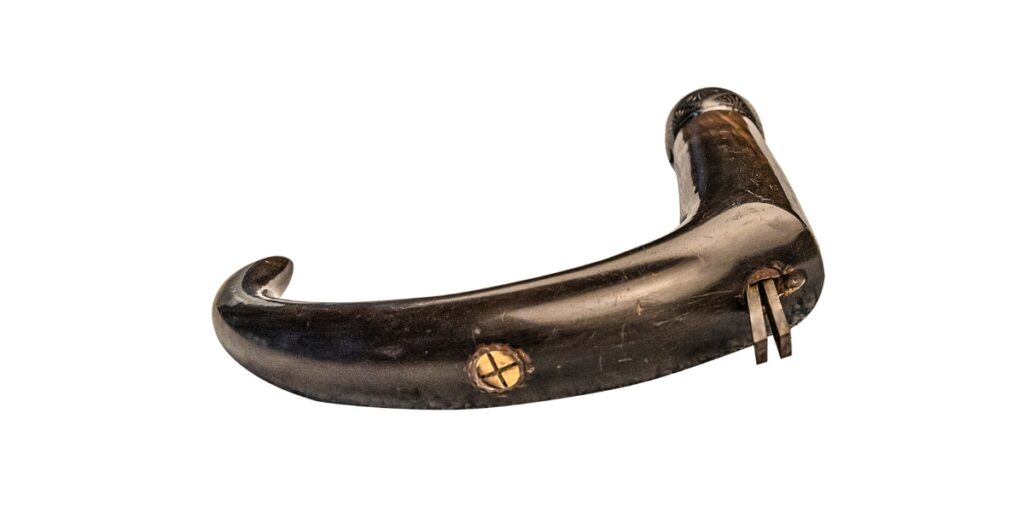
The Etoile walking stick gun
Walking stick guns have been around since the 1580s but they really blossomed in the 19th Century with the invention of the percussion cap.
Get information on the legal shooting season for mammals and birds in the UK.
Apply for funding for your project or make a donation today
Comprehensive information and advice from our specialist firearms team.
Everything you need to know about shotgun, rifle and airgun ammunition.
Find our up-to-date information, advice and links to government resources.
Everything you need to know on firearms law and licensing.
All the latest news and advice on general licences and how they affect you.


BASC’s director of firearms, Bill Harriman, sets out why the new statutory guidance risks undermining the fairness and consistency of the licensing system — and calls for proportionate, evidence-led reform that protects public safety.
Yesterday marked the introduction of the revised Home Office document Firearms licensing: statutory guidance for chief officers of police. BASC remains committed to supporting a robust and effective licensing system, but we are increasingly concerned that this new guidance places disproportionate burdens on certificate holders, applicants and the police, while failing to deliver the promised improvements in consistency and public safety.
We want the system to work – because we are clear that firearms should not be in the hands of the wrong people. An efficient and consistent licensing process is essential not only for public confidence, but for the safety of the shooting community itself.
The updated guidance marks a departure from established licensing principles by moving away from the longstanding balance of probabilities test. This standard has served the licensing process well for many decades, ensuring decisions are made fairly, proportionately, and with regard to all available evidence.
The suggestion that this test can now be set aside based on limited or speculative information introduces serious uncertainty into the process. It risks undermining the consistency and legal robustness of decision-making by allowing subjective judgement to outweigh objective assessment.
People who commit domestic abuse should not have access to firearms. Insofar as the statutory guidance allows licensing teams to better identify individuals who pose a risk to others, particularly in a domestic context, that is a welcome step.
However, this should always be intelligence-led – if there is nothing in an applicant’s background that suggests domestic abuse, there should be no requirement to interview current or former partners.
While well-intentioned, this measure risks being open to misuse, particularly if malicious or vexatious claims are accepted without adequate scrutiny. It is essential that any such information is weighed carefully, tested where appropriate, and used proportionately within a robust evidentiary framework.
Safeguards must also be in place to protect the privacy and rights of those being interviewed, and to ensure consistency of practice across licensing authorities.
Applicants are now required to declare all legal disposals of offences – except for parking tickets – regardless of how minor or historic they may be. This significantly increases the complexity of the application process and creates a risk that unintentional omissions will be interpreted as questions of integrity.
In a further change, the number of referees required for a shotgun certificate has been increased from one to two people, following the tabling of the Firearms (Amendment) Rules 2025. This introduces an additional administrative burden on both applicants and the police, despite a lack of evidence that the referee system makes a measurable contribution to public safety outcomes. To our knowledge, there is no recorded instance where a shotgun certificate has been refused solely on the basis of concerns raised by a referee.
The guidance continues to fall short on requiring a mandatory system of medical markers for certificate holders. We have consistently underlined the point to civil servants in the Home Office that if they want to improve public safety, they should make it mandatory for GPs to add a marker to the medical records of any patient who is a certificate holder. The marker allows GPs to identify a person as a firearms certificate holder and, if necessary, alert the police if the patient develops a condition which makes possession of firearms dangerous. The “best endeavours” approach has consistently delivered patchy results, and without clear instruction for GPs, this remains an underused safeguard.
The recommendation to review medical records from birth is also unrealistic for many applicants, particularly those over fifty. This concern was raised repeatedly during the consultation process, yet it has been left unaddressed.
We welcome the inclusion of ‘mandatory’ training for firearms enquiry officers (FEOs), a long-standing BASC recommendation. However, because the Home Office has refused to continue funding training, which constabularies will have to pay for themselves, there are some concerns about how mandatory this will actually be.
Equally, the requirement to issue receipts and photographs for surrendered property is already inconsistently applied. Without robust oversight, this is unlikely to change.
The instruction for interviews with family members during home visits raises both workload and privacy issues. Forces will need to ensure that appropriate procedures are in place, particularly when these interviews involve children.
Despite strong engagement from BASC and others, many submissions to the public consultation appear to have been overlooked. The revised guidance leans heavily towards a model of risk avoidance, rather than risk management. In doing so, it introduces significant bureaucracy, with limited evidence that the additional burden will improve outcomes or enhance public confidence.
BASC urges ministers to look beyond new restrictions and examine the deeper structural issues within the current licensing system. England and Wales are served by 43 separate licensing authorities, each interpreting the law and guidance differently. This inconsistent framework undermines public confidence and creates unnecessary delays and confusion for certificate holders.
We believe the government should consider establishing a national body for firearms licensing, alongside a robust, centralised system that ensures any buyer is legitimate and properly authorised to purchase the firearm in question. Reform of this kind would offer a meaningful step forward for public safety, fairness and efficiency.
It is not in the interests of those who shoot that the wrong people should have guns. BASC works for an effective and efficient system of firearms licensing that protects public safety. Our members expect a system that is consistent, evidence-led and fit for purpose and we will continue to advocate for that at every opportunity.


Walking stick guns have been around since the 1580s but they really blossomed in the 19th Century with the invention of the percussion cap.

BASC has welcomed clarification from West Mercia Police that paper submissions for firearms and shotgun certificates will continue to be accepted.

The Fighting Fund has successfully helped a member from Cheshire win costs against the police following revocation of his certificate.